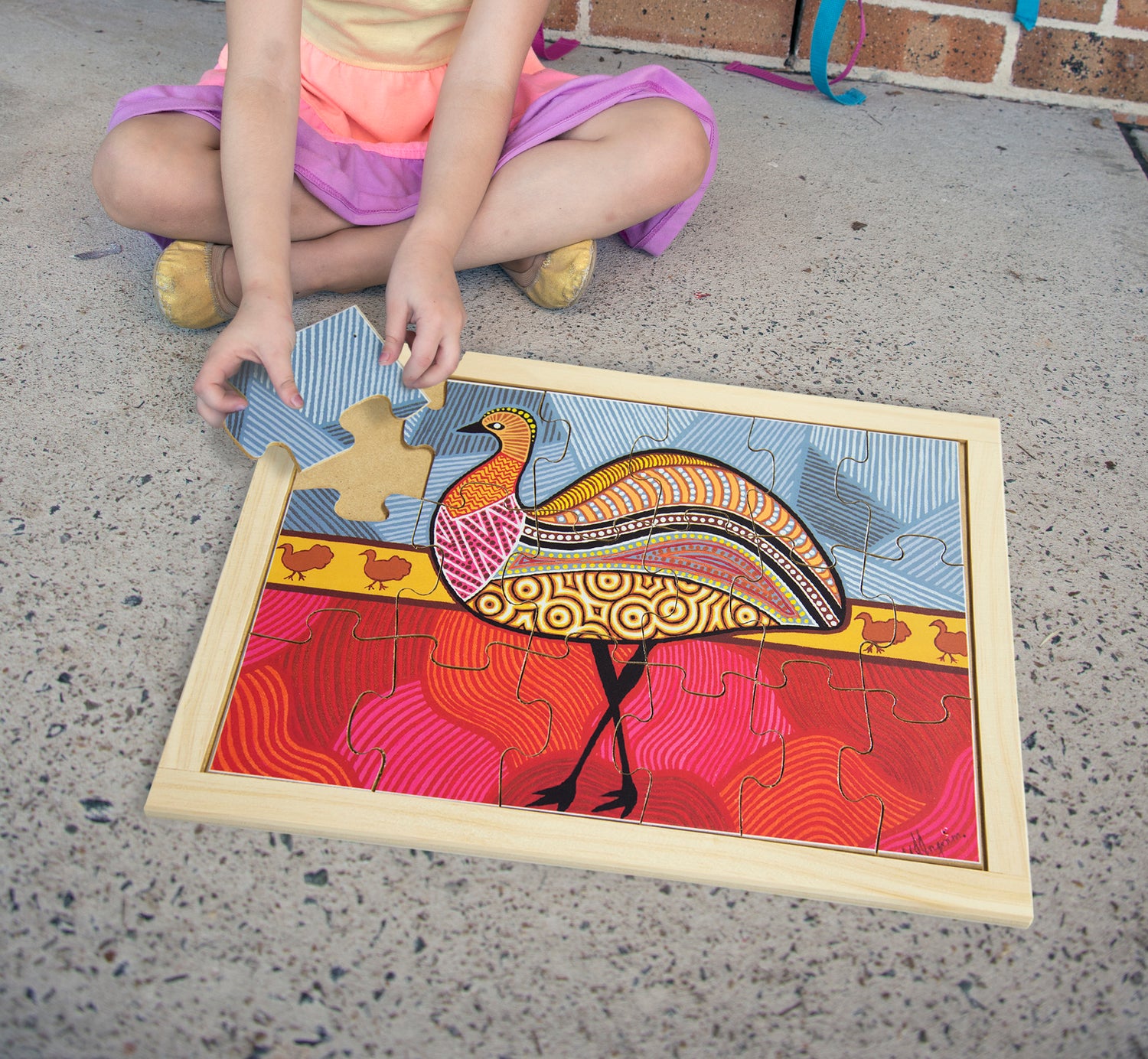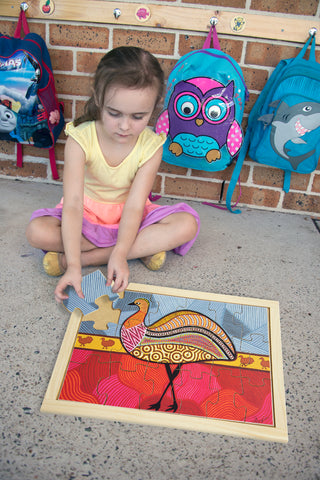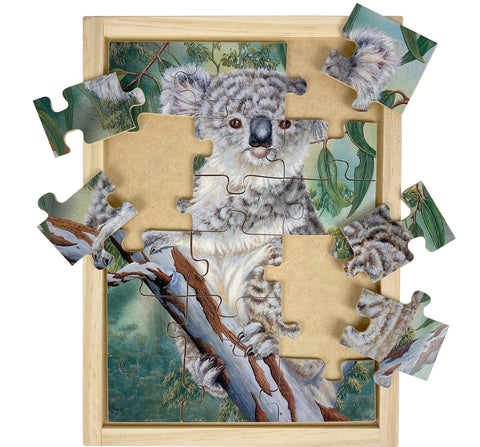
The benefits of jigsaw puzzles for childhood development
Authored by: Emma Constance Williams, Registered Psychologist
With social isolation in full swing, if you’re a parent or caregiver, you may be finding yourself scratching your head lately at how to occupy your children throughout the long hours of the day. But before you reach for the tv controller or tablet, here are some reasons why you might consider a more old-fashioned approach to entertainment.
^ A child learning to assemble a wooden jigsaw puzzle.
Jigsaw puzzles have been around since the 1760s, originally maps printed on sheets of hardwood, jigsaws now come in an infinite array of shapes, designs and levels of difficulty1. Traditionally viewed as a game, a growing body of research suggests that playing with puzzles might have positive impacts on a child’s cognitive, physical and emotional development. In fact, skills learnt when playing with jigsaw puzzles may assist with the development of critical skills that influence success in adult-life. Here are a few:
Fine motor skills
As children pick up, manipulate, grasp and place each puzzle piece they are developing fine-motor skills. Fine-motor skills are related to handwriting, drawing and typing abilities in later life2. Motor ability has even been linked to IQ in school-aged children3.
Visuo-spatial skills
In order to solve the puzzle, the child must form a mental understanding of how each piece fits together to form a whole. These mental representations are a critical aspect of visuo-spatial skills (the capacity to understand the relationships between objects in space), which are significantly related to maths and writing ability at school4.
Hand-eye coordination
As the child coordinates what they see with where they must move their hands to place each piece correctly, they are developing hand-eye coordination. Hand-eye coordination is corelated with sporting ability, balance, handwriting and reading5.
Problem solving skills
Jigsaw puzzles help build the foundations of important skills needed to overcome more complex problems in later life, including planning, goal setting and deductive reasoning. Each success in working through challenges and completing the puzzle also contributes to the child’s sense of self-efficacy. Self-efficacy supports children to build the self-confidence necessary to persevere through more challenging tasks in later life6.
Emotional regulation
By dealing with frustrations as they work to fit the pieces through trial and error, children also develop emotion-regulation skills, such as patience and perseverance. Emotion-regulation in early childhood is predictive of later academic success7,8.
Focused attention
Solving a puzzle requires concentration and focused attention. Puzzles can’t be cheated, teaching the child to slow down and attend to the details. Focused attention is a critical component of adult complex problem-solving ability.
^ One of our famous wooden jigsaw puzzles, the Koala puzzle.
Puzzles are a simple tool for mixing entertainment with critical developmental skills. Each of the skills developed while playing with jigsaw puzzles set our children up for success in later life by building essential cognitive, physical and emotional capabilities. As such, the humble jigsaw puzzle should not be overlooked as a key piece of a child’s developmental toolbox.
References
- https://en.wikipedia.org/wiki/Jigsaw_puzzle
- Volman, M. J. M., van Schendel, B. M., & Jongmans, M. J. (2006). Handwriting difficulties in primary school children: A search for underlying mechanisms. American Journal of Occupational Therapy, 60(4), 451-460.
- Hernandez, A. M., & Caçola, P. (2015). Motor proficiency predicts cognitive ability in four-year-olds. European Early Childhood Education Research Journal, 23(4), 573-584.
- Carlson, A. G., Rowe, E., & Curby, T. W. (2013). Disentangling fine motor skills’ relations to academic achievement: the relative contributions of visual-spatial integration and visual-motor coordination. The Journal of genetic psychology, 174(5), 514-533.
- https://ilslearningcorner.com/2016-02-hand-eye-coordination-how-hand-eye-coordination-helps-early-readers/
- Fleer, M. (1990). The value of jigsaw puzzles in early childhood education. Early Child Development and Care, 60(1), 73-88.
- Trentacosta, C. J., & Izard, C. E. (2007). Kindergarten children's emotion competence as a predictor of their academic competence in first grade. Emotion, 7(1), 77.
- Ivcevic, Z., & Brackett, M. (2014). Predicting school success: Comparing conscientiousness, grit, and emotion regulation ability. Journal of research in personality, 52, 29-36.


